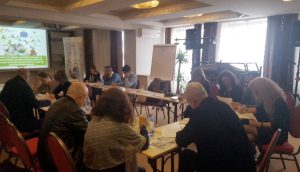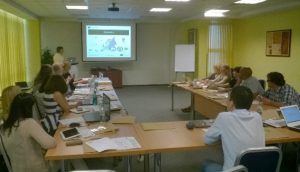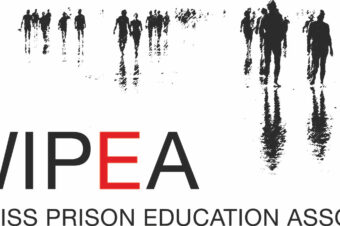October 2018 – by Lucia Petrescu from the National Administration of Penitentiaries, Romania
 Romanian National Administration of Penitentiaries implements, in cooperation with other 6 organizations from 4 countries (Portugal, Romania, Lithuania and Great Britain) worked on the project called ‘European Interaction Guidelines for Education Professionals when Working with Children in Juvenile Justice Learning Contexts – EIGE’ (2015-2018).
Romanian National Administration of Penitentiaries implements, in cooperation with other 6 organizations from 4 countries (Portugal, Romania, Lithuania and Great Britain) worked on the project called ‘European Interaction Guidelines for Education Professionals when Working with Children in Juvenile Justice Learning Contexts – EIGE’ (2015-2018).
The EIGEP project is co-financed by the European Commission under the “ERASMUS+ K2 Further Looking Cooperation Projects” and it brings together state and private actors from education, justice, community and business, with the purpose of experimenting community-based solutions in assuring quality education processes within juvenile justice settings.
The project aims to reduce the educational disparities in the learning outcomes of the children within the juvenile justice, compared to the ones delivered in mass education. EIGEP lies on a very simple and yet extremely complex concept – to benefit from positive learning outcomes, children and youngsters from the juvenile justice must be in an environment where all the involved sides understand its specificity and uniqueness.
In other words, the ‘justice side’ understands children need special approach and access to professionalized education. The “education side” understands that justice settings are very particular learning contexts that need trained professionals while the “youth side” understands the need of proactive interventions where the client is not condemned to be a socially assisted person for life but a pro-active young person, integrant part of his/her local community.
Secondary objectives of the project:
- Improving the learning outcomes of education in juvenile settings through:
- the development of a innovative European induction tool for the initial and further training of educators teaching in juvenile justice contexts (i.e. youth detention centers, youth service centers, alternative detention, Alternative Provision schools)
- the development of support tools and networks to improve the availability and quality of European training offer to education and teaching professionals interested in juvenile justice as a learning context.
- Improving the management of teaching and learning professionals through measures to develop the learning dimension of the juvenile justice system in the partner countries and on a European level.
The EIGEP project is targeting an educational area that is extremely challenging, but relevant especially in today’s context of violent extremism and radicalisation: juvenile justice and the quality of learning outcomes arise from this context.
More details about the EIGEP Project and the main results of the work-packages are available on www.eigep.eu.








